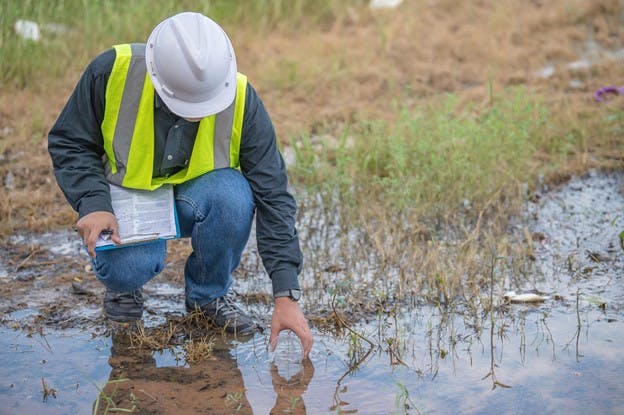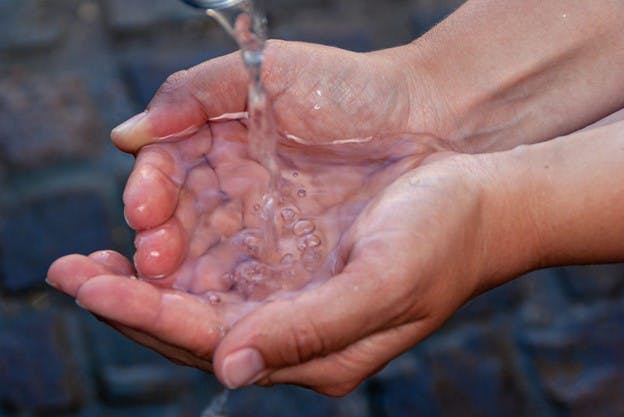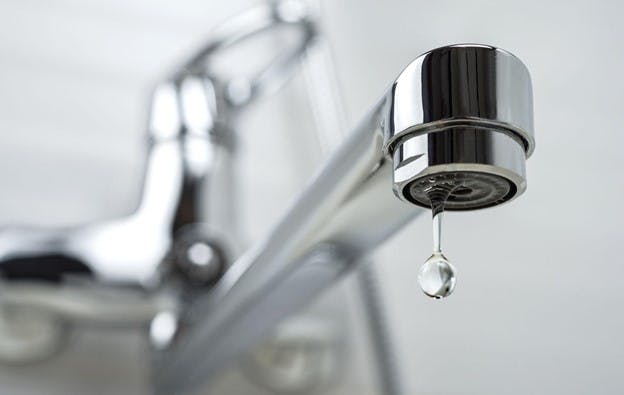March 2023
Take a Deep Dive Into Atlanta Water Quality
The Big Peach is one of the most important cities in the South. Millions of people call greater Atlanta home, it birthed Coca-Cola and many other Fortune 500s, and Hartsfield-Jackson Atlanta International Airport is the busiest in the entire world. The city of Atlanta also has a burgeoning artistic culture. Not only are there dozens of big-name musicians out of Atlanta, but its film industry is the fastest growing in the U.S.
With so much going on in this gem of a town, it’s important to know how they manage their water supply. Is Atlanta tap water safe to drink? We’re going to take a look at the Atlanta water quality report and find out.
Where Does Atlanta Get Its Drinking Water From?
Forming a good portion of Georgia’s border with Alabama and Florida, the Chattahoochee River also acts as the main water supply for Atlanta. Every day 98 million gallons of water are pumped from the river and treated to supply tap water to 1.2 million people in and around Atlanta.
How Is Atlanta Water Quality?
The Chattahoochee River is the most utilized surface water source in Georgia. It’s used for everything from drinking water, to generating electricity, to recreation activities. This mammoth river serves multiple millions of people in three states and is teeming with wildlife.
Unfortunately, its great size means 8,770 square miles of land (including the city of Atlanta) drain into the river, which means parts of this watershed are polluted. That raises some concern among residents about Atlanta water quality.
While most of it is treated first, the wastewater from millions of people in the Atlanta area is drained into this river. Since the city is growing faster than the water treatment plants can keep up with, untreated sewage spills can be common.
The river also collects stormwater runoff, which deposits oil, chemicals like fertilizers and herbicides, as well as tire dust and other microplastics into its precious waters.
Is Atlanta Tap Water Safe to Drink?
Since 1974, the Safe Drinking Water Act requires all U.S. public water suppliers to meet certain safety standards as laid out by the U.S. Environmental Protection Agency (EPA). Atlanta public water systems meet or exceed all of these water standards.
To accomplish this, the City of Atlanta Department of Watershed Management — which is responsible for transporting water from the Chattahoochee River to your faucet — maintains a rigorous water testing and treatment regimen. Drinking water quality is tested over 50,000 times per year at various stages or treatment and delivery. The results of these tests can be found in the Atlanta water quality report — also known as the Consumer Confidence Report — which is required to be made public annually.
Meeting regulated standards doesn't always mean safety though. There are many unregulated contaminants in tap water, like microplastics, PFAS, and chromium, that impact Atlanta water quality. Even contaminants that are regulated can have changing recommendations over time as public health officials learn more about their dangers. What is deemed safe now might be considered unsafe later.
Regulations also take time to pass and to be implemented. The D.C.-based drinking water watchdog, the Environmental Working Group (EWG), points out that it’s been 20 years since the EPA has updated its regulations even though our understanding of the dangers of many contaminants could warrant changes.
Let’s look at some of the contaminants in Atlanta tap water that the EWG considers to have potentially negative health effects, starting with disinfection byproducts (DBPs).
What Impurities Affect Atlanta Water Quality?
Is Atlanta tap water safe to drink? To answer this question we have to understand what contaminants are in the water and what effects they can have.
Like many modern cities, Atlanta treats its tap water with disinfectants like chlorine. Although no one likes their drinking water to smell like a swimming pool, the small amounts added to the water supply are considered safe to consume, and it kills potentially deadly pathogens.
While chlorine helps improve Atlanta water quality in these ways, the problem arises when the chlorine interacts with the organic matter in your source water and creates harmful disinfection byproducts (DBPs). These byproducts are thought to cause cancer with large amounts of exposure, over a long enough time period.
Here are a few DBPs you might want to watch out for if you live in Atlanta.
Haloacetic Acids (HAA5)
There are five haloacetic acids that make up HAA5, including: monochloroacetic acid, dichloroacetic acid, trichloroacetic acid, monobromoacetic acid, and dibromoacetic acid. Long-term exposure to HAA5 can lead to cancer.
Levels of HAA5 in Atlanta water have exceeded what the EWG recommends for safety by 369x.
- EPA maximum allowance: 60 parts per billion (ppb)
- EWG recommended maximum: 0.1 ppb
- Atlanta maximum contaminant level: 36.9 ppb
HAA9
HAA9 includes all of the contaminants from HAA5 but adds bromochloroacetic acid, bromodichloroacetic acid, chlorodibromoacetic acid, and tribromoacetic acid. These are also cancer-causing.
Levels of HAA9 in Atlanta water have been recorded at 905 times higher than the EWG recommends for safety.
- EPA maximum allowance: No legal limit
- EWG recommended maximum: 0.06 ppb
- Atlanta maximum contaminant level: 54.3 ppb
Total Trihalomethanes (TTHMs)
TTHMs are formed when chlorine interacts with organic compounds in drinking water. They’re also known to be carcinogenic. This category is made up of four chemicals: chloroform, bromodichloromethane, dibromochloromethane, and bromoform.
Levels of TTHMs in Atlanta water have been 286 times higher than the EWG recommendation for safety.
- EPA maximum allowance: 80 ppb
- EWG recommended maximum: 0.15 ppb
- Atlanta maximum contaminant level: 42.9 ppb
Besides DBPs, Is Atlanta Tap Water Safe to Drink?
Disinfection byproducts aren’t the only contaminants affecting Atlanta water quality. Here are three more to watch out for.
Chromium (Hexavalent)
Chromium is a common heavy metal contaminant often found in U.S. water supplies. It’s both naturally occurring and an industrial byproduct. Although it’s a known carcinogen, the EPA still doesn’t regulate it.
Chromium levels in Atlanta water have exceeded what the EWG recommends for safety by 7.3x.
- EPA maximum allowance: No legal limit
- EWG recommended maximum: 0.02 ppb
- Atlanta maximum detected level: 0.145 ppb
Nitrates and Nitrites
Nitrates and nitrites usually end up in water supplies through stormwater runoff from fertilizers, but they can also come from septic tanks. They can cause oxygen deprivation in infants and increase the risk of certain cancers.
Nitrate and nitrite levels in Atlanta water have exceeded what the EWG recommends for safety by 6.3x.
- EPA maximum allowance: 10 parts per million (ppm)
- EWG recommended maximum: 0.14 ppm
- Atlanta maximum detected level: 0.883 ppm
PFAS and PFOAS
Known as “forever chemicals” because they don’t break down in the environment or in your body, PFAS are manmade chemicals used in nonstick coatings, stain-resistance treatments, and firefighting foam.
Over the past 20 years, the EPA and CDC have worked with companies like 3M and DuPont to phase out the use of these chemicals over health and environmental concerns. The EPA has also given water suppliers recommended limits for PFAS in water, but they haven’t made testing and reporting of these chemicals mandatory. If Atlanta tests for PFAS, the results don’t appear on the Atlanta water quality report.
What we do know though is that the groundwater surrounding nearby military bases have been heavily contaminated by PFAS for decades and this could find its way into drinking water supplies.
PFOA and PFOS have been linked to increased cholesterol levels, changes in liver enzymes, lower vaccine response in children, high blood pressure in pregnant women, decreases in infant birth weights, and increased risk of kidney and testicular cancer.
Is Atlanta’s Water Hard or Soft?
Hard water occurs when groundwater flows over rocks and breaks them down. Minerals like calcium and magnesium break free from rocks and soil to hitch a ride in the water. Water carrying lots of these mineral solids is known as hard water, while water free of these solids is known as soft water.
While these minerals aren’t dangerous to ingest, they can clog your pipes and water-using appliances, encourage bacteria growth on surfaces, and lower the effectiveness of your soap.
Most drinking water in the United States is hard water since it comes from groundwater sources. However, Atlanta water comes from surface water systems and has some of the softest water anywhere in the country.
Does Atlanta Have Fluoride in Water?
Fluoride is a naturally occurring mineral that’s often added to drinking water to strengthen tooth enamel. Like many other cities in the U.S., Atlanta does fluoridate its water.
If you would rather not consume fluoride from your tap water, the best way to remove it is with a reverse osmosis water filter.
How to Get the Best-Quality Water to Your Atlanta Home
After this deep dive, you may be asking yourself: Is Atlanta tap water safe to drink? Keep in mind that, in compliance with the Safe Drinking Water Act, the city of Atlanta tests its drinking water regularly and publishes the results for you to see. You can check the Atlanta water quality report once a year to be sure that your drinking water meets regulations.
However, pollution of the Chattahoochee River, disinfection byproducts, and contaminants like microplastics and PFAS all impact Atlanta water quality. If you want to be sure you’re getting the best-quality water in your Atlanta home, HomeWater’s 4-Stage Reverse Osmosis Under Counter Under Sink Water Filter will ensure that you get high-quality filtered drinking water from your sink. With four stages of filtration, it reduces sediment, chlorine, hexavalent and trivalent chromium, lead, selenium, fluoride, nitrate and nitrite, and many other common contaminants.
If you’re concerned about filtering water for all of your faucets and appliances, check out the HomeWater 4-Stage Whole Home Filter. This system is rated for one million gallons and reduces 97% of chlorine and 98% of dissolved heavy metals from source water before it enters your pipes, so you can enjoy filtered water from every faucet. With HomeWater, your Atlanta water will be just peachy.
Related Articles
February 2023
The Important Facts About Chicago Water Quality
December 2022
Your Total Guide to Houston Water Quality
January 2023



